I love the smell of CES in the morning. Seriously, I *love* CES (here’s my walkthrough the show last year with Robert Scoble – be warned – its 45 minutes long), though I’d love to see them move it back in the year a few weeks. CES is like SXSW, except people actually get some work done in addition to all the partying. I love the vaporware demos sandwiched in between the unnecessarily huge screens and the neon. Lots and lots of neon. LOVE IT – and no, this isn’t a long, drawn out sarcastic rant. But I’m taking a break from my annual “CES Tips” lists, as there’s nothing substantive to add. Instead, here’s some thoughts on what I’m expecting next week:
Nothing Revolutionary
That might sound weird, but I’m just not expecting any “big new thing” at this year’s show, instead lots of “mostly better things than last year”. Bigger screens. Thinner screens. Lighter phones. Longer batteries. The major keynotes are from Qualcomm, Panasonic, Verizon, and Samsung – not one of these companies has a history of revolutionizing the show.
But yet, lots of cool updates
While nothing should blow us away, I’m expecting tons of improvements to other products. More smart TVs with more smarterness to them. Lots of UltraHD/4K TVs (sigh). More well-done AirPlay integrated devices. It’ll be fun.
Especially OLED
Coolest thing at CES 2012 were the 4MM thick OLED TVs that didn’t ship in 2012, despite promises they would. Coolest thing at CES 2013 will be the 4MM OLED TVs that might actually ship in 2013.
Meme Prediction: Complaints about the lack of stuff
If there’s one thing that follows the theme of “nothing revolutionary” its listening to everyone, their mother, and their mother’s facebook friends complain about nothing being new at the show. You shouldn’t be expecting something big, and whining about how you could’ve stayed home is just annoying.
Potential sleepers: Verizon & Qualcomm
Interestingly, both have keynotes, and both have large booths (and near each other). If I had to put money on “doing something unexpectedly big” I’d place on either, or both of these companies.
What I’d love to see, but don’t expect
Flexible displays. I’ll go so far as saying there’ll be *nothing* exciting in consumer electronics and mobile devices between now and when the first generation of devices with flexible/bendable displays arrive. So I’ve got a secret hope that even prototype stuff will emerge from someone’s labs at this year’s show.
What I’m already bored of: More Tablets
I still haven’t seen a single product from a single company that defines a “tablet market” and I’m not expecting that to change at CES. But, I am expecting loads of cheap tablets that might do well overseas, which is all fine and good. Yawn.
I’m Betting On: Smarterer TVs
Every single TV company will announce new Smart TVs. And every one of them will continue to make TVs that are harder to use than they were before. Bummer.
Who Will Be Missing?
Amazon, Google, Microsoft, Apple – the four companies that would make the show dramatically more interesting.
That’s about all I can think of. Shame is I’ve got so many other commitments at the show this year I have no idea if I’ll even get to walk the floor. C’est La CES, C’est La Vie!




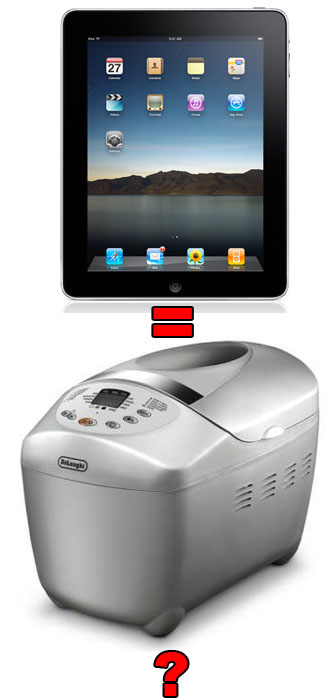



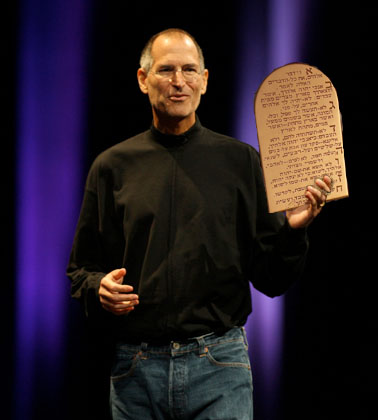

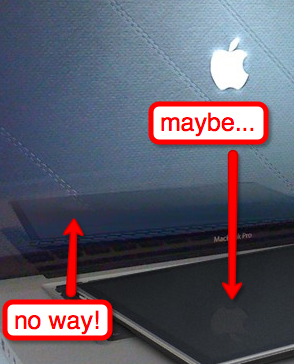
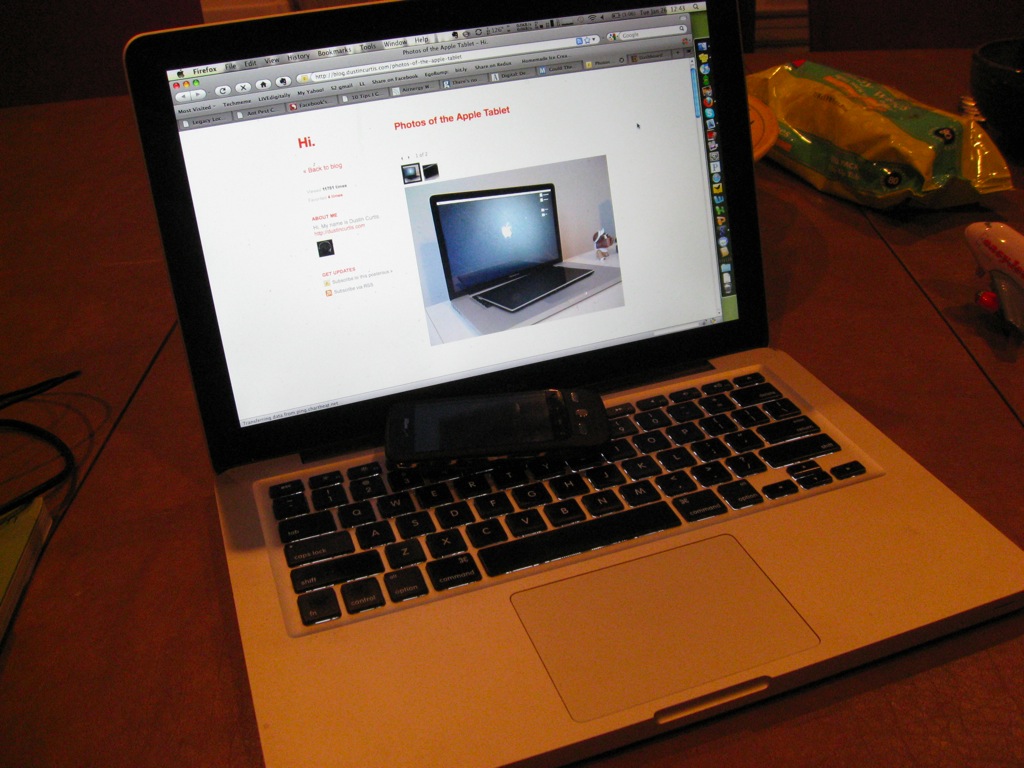
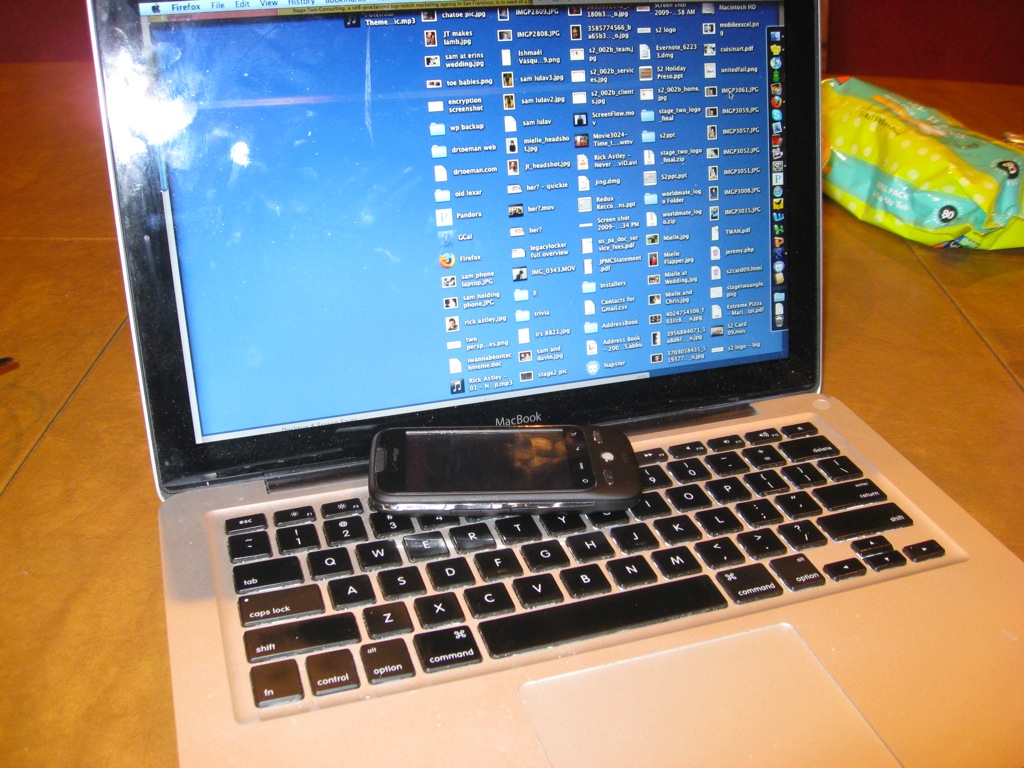
 The
The 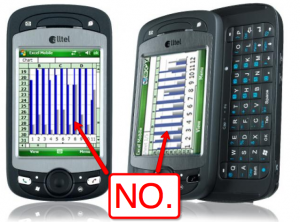
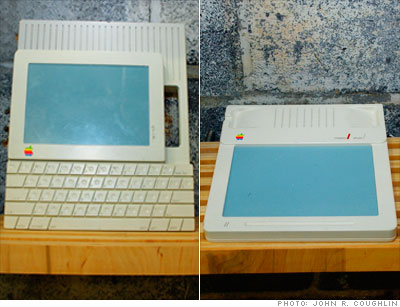 If you follow gadgets or new tech and you are not aware that Apple is introducing “something” next Wednesday, you are either (1) my wife or mother or (2) awaking from a long long sleep. Now along with virtually anything Apple does, or contemplates doing, or doesn’t contemplate doing but others contemplate on their behalf, the
If you follow gadgets or new tech and you are not aware that Apple is introducing “something” next Wednesday, you are either (1) my wife or mother or (2) awaking from a long long sleep. Now along with virtually anything Apple does, or contemplates doing, or doesn’t contemplate doing but others contemplate on their behalf, the 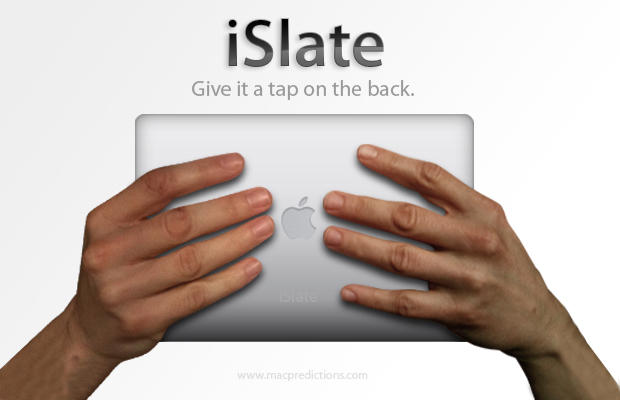
 Seriously, it’s a real possibility. What if instead of showing us a tablet, they show a 4G iPhone and impressive updates to other devices (or not)? What if they announce media streaming services instead? We all know Apple plays their own game, and if they haven’t figured out how to make this thing magical, I don’t think they’d want to ship it. It would be a bit of an odd strategy, as there seem to be a few too many pseudo-confirmed rumors, but then again, Apple doesn’t deal with
Seriously, it’s a real possibility. What if instead of showing us a tablet, they show a 4G iPhone and impressive updates to other devices (or not)? What if they announce media streaming services instead? We all know Apple plays their own game, and if they haven’t figured out how to make this thing magical, I don’t think they’d want to ship it. It would be a bit of an odd strategy, as there seem to be a few too many pseudo-confirmed rumors, but then again, Apple doesn’t deal with  Every year
Every year  Whatcha Talkin Bout Willis?
Whatcha Talkin Bout Willis? Definition: For sake of discussion, I’ll define the First Age of Gadgets as starting with calculators and LCD watches (and, of course, calculator watches). Sticklers will quickly point out something I’m missing, but in my opinion that’s when the concept of “gadgets” really got kicking. These products (1) required batteries and (2) did one thing, typically pretty well. These early gadgets were typically fairly functional in nature, not very gimmicky or showy. They were also workhorses as compared to modern products – you can drop most “old school” products and not fear for significant damage (probably directly related to LED or single-line LCD outputs).
Definition: For sake of discussion, I’ll define the First Age of Gadgets as starting with calculators and LCD watches (and, of course, calculator watches). Sticklers will quickly point out something I’m missing, but in my opinion that’s when the concept of “gadgets” really got kicking. These products (1) required batteries and (2) did one thing, typically pretty well. These early gadgets were typically fairly functional in nature, not very gimmicky or showy. They were also workhorses as compared to modern products – you can drop most “old school” products and not fear for significant damage (probably directly related to LED or single-line LCD outputs). Definition: In a nutshell: USB connectivity and/or card reader integration. Slightly more detailed: the Second Age of gadgets is about products that were able to connect and/or share data with a computer (but did not include WiFi) and/or cell phones. Gadgets started becoming a little more pervasive, a little more mainstream, a lot more pop culture. In addition to the gadgets themselves, the category of gadget accessories really began to boom (chargers, carrying case, rechargeable batteries, etc). This was also the dawn of the gadget blogs. I asked Peter Rojas, founder of Gizmodo, if he could recall why he launched the site: “It was an experiment, something Nick and I started almost by accident. I don’t think either of us thought blogging would become as big as it did. People are a LOT more interested in gadgets now than when I started Gizmodo in 2002 – it’s become part of pop culture.”
Definition: In a nutshell: USB connectivity and/or card reader integration. Slightly more detailed: the Second Age of gadgets is about products that were able to connect and/or share data with a computer (but did not include WiFi) and/or cell phones. Gadgets started becoming a little more pervasive, a little more mainstream, a lot more pop culture. In addition to the gadgets themselves, the category of gadget accessories really began to boom (chargers, carrying case, rechargeable batteries, etc). This was also the dawn of the gadget blogs. I asked Peter Rojas, founder of Gizmodo, if he could recall why he launched the site: “It was an experiment, something Nick and I started almost by accident. I don’t think either of us thought blogging would become as big as it did. People are a LOT more interested in gadgets now than when I started Gizmodo in 2002 – it’s become part of pop culture.” Definition: Internet access and connectivity. Devices had either built-in Internet access, or some hybrid method of interacting with the Internet to share content, data, or services. In many cases Third Age devices are simple evolutions to their predecessors, but some innovated distinctly enough so that there’s no blurry lines. Just as the
Definition: Internet access and connectivity. Devices had either built-in Internet access, or some hybrid method of interacting with the Internet to share content, data, or services. In many cases Third Age devices are simple evolutions to their predecessors, but some innovated distinctly enough so that there’s no blurry lines. Just as the  Displays: I assume we’ll be seeing flexible display surfaces (folding, roll-up, etc) that change the way we physically interact with a device. The concept of a hard, flat screen (even a touchable one) seems very outdated to me. I think the real revolutionary tablet will be the first one with some form of flexible display (and my money’s on Apple for making this happen). I also foresee better use of microprojectors to remove the need for an on-board display at all.
Displays: I assume we’ll be seeing flexible display surfaces (folding, roll-up, etc) that change the way we physically interact with a device. The concept of a hard, flat screen (even a touchable one) seems very outdated to me. I think the real revolutionary tablet will be the first one with some form of flexible display (and my money’s on Apple for making this happen). I also foresee better use of microprojectors to remove the need for an on-board display at all.